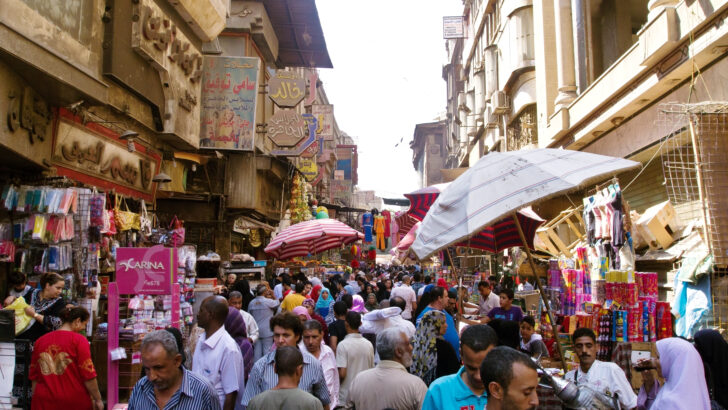Justin Robinson OSB
So many people walk across the courtyard of Al Azhar mosque in Cairo that its white marble has become highly polished, the floor below reflecting an almost mirror image of the mosque’s architectural wonders that tower above. I’m sitting in the carpeted arcade around the vast courtyard, watching worshippers milling around in the cool of the evening as the sun sets and the time for maghrib prayers fast approaches.
It has been just over one month since I arrived to begin a master’s degree in Arabic and Islamic Studies at the American University in Cairo. This city is the ideal place for my studies, and I’m privileged to be living in the heart of the Arab world and a place long considered the seat of Islamic learning. To escape the demands of my lectures and books, I often come to this mosque to sit and watch the world go by and try to experience and understand something of the religion lived by nearly a quarter of the world’s population.
History
I’m a very long way from my monastery in rural Limerick, but I remind myself that these studies might be considered a continuation of the long history of Benedictine engagement with Islam. It was the Toledo School of Translators (founded by the city’s Benedictine archbishop Raymond de Sauvetât) which was responsible for translating many works of Islamic philosophy and science from Classical Arabic into Medieval Latin, and it was there that Peter the Venerable, the famed Benedictine abbot of Cluny, commissioned the first Arabic to Latin translation of the Qur’an in the 12th century.
Peter was very much aware of the need to study and respond to Islam, but bemoaned how “there was no one who replied to Islam because there was simply no one who knew about it” as few had the linguistic skills to study the religion’s source materials. It is this monastic heritage that encourages me along my current path, and pushes me forward to engage in some sort of dialogue which is informed by serious study, personal experience and knowledge of the Arabic language.
So, here I am settling into Egypt. It’s a fascinating country to live in, though Cairo is a constant assault on the senses. The city is hot, dusty, noisy, and packed with people. Egyptians aren’t lacking in confidence – they’re from the ‘mother of the world’, after all – and whatever their difficulties in recent years they consider them to be only a small blip in the long civilization of which they are the heirs.
The morning ride to the university is ever eventful. Cairene driving is not for the faint hearted, but I’m thankfully kept distracted from the motoring chaos by fellow passengers who inevitably turn to the agnabi (foreigner) to start a conversation with their characteristic friendliness. They’re always delighted to hear about Ireland, a country which has become much admired throughout the Middle East and North Africa for its boldness and leadership on the issue of various regional conflicts. Their dialect of spoken Arabic is a little challenging, as are their many idioms, but misunderstandings simply add to the fun.
The call to prayer is sounding now, signaling that it’s time to sign off my letter home and leave the precincts of Al Azhar before the evening crowd fills the courtyard. Back at my desk a stack of books awaits, reminders of the work that brought me here. But before I go, I pause to reflect on the history that surrounds me and urges me on – of Islamic learning and Benedictine scholarship, intertwined across the centuries. Enough, I’d better get a move on or as the Egyptians would say ‘ana halbes fi heta,’ I’ll be wearing a wall—whatever that means! Perhaps the mysteries of language, like those of faith, are best understood by living them.
Justin Robinson OSB is a monk of Glenstal Abbey in County Limerick currently residing in Cairo.


 Cairo, Egypt - September 5, 2011: Scene from the busy Khan El Khalili bazaar in Cairo. Khan El Khalili is a major souk in the Islamic district of Cairo.
Cairo, Egypt - September 5, 2011: Scene from the busy Khan El Khalili bazaar in Cairo. Khan El Khalili is a major souk in the Islamic district of Cairo.